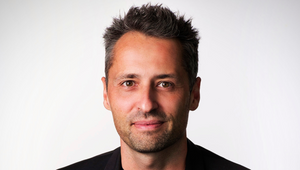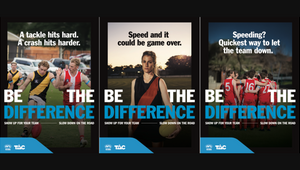
Danni Wright: “My Creativity Thrives in an Environment Where I Know That I’m Valued and Supported”

Danni Wright has worked at Carat Australia for the past nine years. She started her journey in Australia as a strategy director in 2014. During her time with Carat Australia, Danni has been a judge for NGEN and Cannes Young Lions, a MFA Awards Committee member, and the winner of the 2019 B&T Women in Media award for strategy. Today she is Carat Australia’s chief strategy officer.
Before her Australian appointment, she spent five years at Carat UK, having been recruited in 2009 as a part of the Carat graduate program. In 2010, she became an account manager for Carat’s global clients, before moving on to be communications strategist, and finally strategy director.
During her career she has worked with clients such as LEGO, Kelloggs, Mattel, Johnson and Johnson, and Woolworths.
Danni sat down with LBB’s Casey Martin to speak on being an intense over-worker while at school, and figuring out the most effective ways to communicate with her team.
LBB> Growing up, were you always the one with the strategy? Did you always know how to get out of trouble or the best way to work smarter not harder on a school project?
Danni> If only!
The truth is quite the opposite; I was relentlessly studious at school, and acutely anxious about getting into any kind of trouble, which meant I was an intense over-worker (which isn’t an easy trait to shake!).
That said, there were some signs of a future career in strategy- I was deeply passionate about psychology, for example. I actually wanted to become a child psychologist, until I realised that comms strategy was a way of using my obsession with how people think, but without the emotional toll (most of the time).
LBB> How would you describe the relationship between creativity and strategy?
Danni> Strategy is the road that helps creativity get to where it needs to go.
Developing strategy also requires creativity; in a subject matter where the ‘science’ can only take us so far-strategy without creativity is merely distillation; creativity is the leap required to turn distillation into direction.
LBB> Communication is arguably the one thing all departments within the advertising industry have in common, what strategies have you found work best when it comes to communicating within your own team?
Danni> One thing I needed to learn right out of the gate of leading a team was different communications languages. Realising how differently people receive and respond to information meant learning how to speak different languages, whilst being consistent with what it was I was saying. Obviously not literal languages, but the style of communications used, written or verbal, sharp or detailed, direct or soft. It’s a constant practice as it applies as much to communicating with a team as it does with clients and stakeholders across the business.
LBB> Do you believe that as we continue to develop technology that there will come a point where communication will become a footnote rather than a priority or would you argue the opposite, that technology is giving us deeper connections?
Danni> Fundamentally I believe that technology is an enabler to connection, whilst there are indeed behaviours supported by technology that are corrosive.
If we fast forward to a world where we are all connected by neuralink and no longer need to communicate verbally, I would argue that this would lead to deeper personal connections by removing the ambiguity that can come between intent and interpretation.
I also think that technology is enabling deeper connections between brands and people; by enabling brands to display more empathy with what people need. Whether or not brands are getting it right is a different matter.
LBB> When working with your team, how do you foster a creative professional environment?
Danni> I think that the most important thing is to create a sense of psychological safety. I know personally that my creativity thrives in an environment where I know that I'm valued and supported.
LBB> What has been something that you’ve worked on that you’re particularly proud of? What did you learn?
Danni> The project I'm most proud of was the one that I was most challenged by. It was a piece of work that took me outside of my comfort zone, and required me to wrestle my impostor syndrome back into its box! The biggest learning was that strategic thinking doesn’t need to be perfect to be valuable. Having an informed view that is shared with provocation can get to, and build confidence in, a strategic director more productively than painstakingly pouring to get to ‘the answer’.
LBB> How would you describe your position to someone outside of the industry?
Danni> I help brands decide how, when, where and with who they need to communicate.
LBB> Lastly, what do you absolutely love about this career?
Danni> I’m constantly learning, and I don’t see that changing any time soon.














